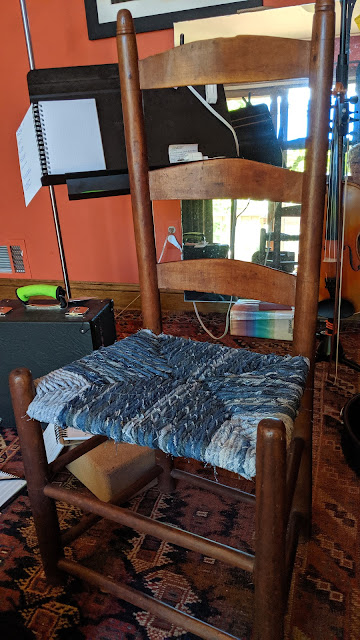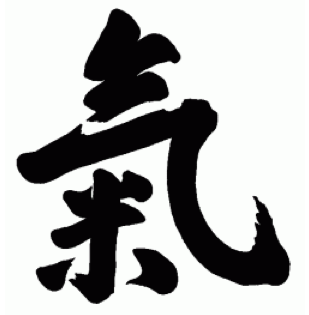Cloud Gazing
When I was a kid I used to lie in the grass under a tree and stare up at the clouds. I would just watch the clouds floating slowly by, gradually changing their shapes. Occasionally I would notice a cloud that looked like a familiar object, and I would name it, "dragon," "ship," but mostly my mind just floated like the clouds, with thoughts coming in and flowing out just as freely. It was incredibly relaxing. I think most of us have very few moments of relaxation like that in our lives.
What has happened to us? Life has given us so many experiences that whenever we have a thought, however random, it leads to another thought, and another, until we are carried far away from where we started. A lifetime's experience gives us many things to think about, many ideas to connect to. It's particularly unsettling to pay attention to the train of thought and realize how often it leads to self-criticism.
This idea is particularly appropriate in a practice, whether it be aikido, yoga, music, sports, or any other dedicated practice. Particularly as we practice longer and consider ourselves "experienced," the things we know can actually prevent us from seeing what "is." "This is how my body wants to move," is followed by, "I wish I were stronger," and then, "I should be practicing this more often," or "I'm just a weakling," and suddenly we are no longer paying attention.
To improve in our practice, we need to allow the mind to work freely, allowing ideas to flow in and out, just like clouds, without becoming attached to the train of thought. "Oh, this is how my body wants to move," is just a matter of interest, with no association, no emotion attached. "Oh, I just felt proud of myself/angry at myself for doing that," is just an observation, as if you were observing an interesting flower. It takes a lot of focus and compassion with oneself, to allow the succeeding thoughts to just float away like clouds.
What has happened to us? Life has given us so many experiences that whenever we have a thought, however random, it leads to another thought, and another, until we are carried far away from where we started. A lifetime's experience gives us many things to think about, many ideas to connect to. It's particularly unsettling to pay attention to the train of thought and realize how often it leads to self-criticism.
This idea is particularly appropriate in a practice, whether it be aikido, yoga, music, sports, or any other dedicated practice. Particularly as we practice longer and consider ourselves "experienced," the things we know can actually prevent us from seeing what "is." "This is how my body wants to move," is followed by, "I wish I were stronger," and then, "I should be practicing this more often," or "I'm just a weakling," and suddenly we are no longer paying attention.
To improve in our practice, we need to allow the mind to work freely, allowing ideas to flow in and out, just like clouds, without becoming attached to the train of thought. "Oh, this is how my body wants to move," is just a matter of interest, with no association, no emotion attached. "Oh, I just felt proud of myself/angry at myself for doing that," is just an observation, as if you were observing an interesting flower. It takes a lot of focus and compassion with oneself, to allow the succeeding thoughts to just float away like clouds.




Comments
Post a Comment